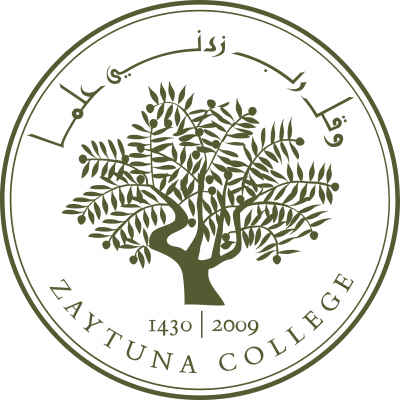
Liberal Arts Restoring a Lost Tradition
Zaytuna College

Key Information
Campus location
Berkeley, USA
Languages
English
Study format
On-Campus
Duration
Request info
Pace
Request info
Tuition fees
Request info
Application deadline
Request info
Earliest start date
Sep 2024
Scholarships
Explore scholarship opportunities to help fund your studies
Introduction
At Zaytuna College, we have set out to do our best at restoring the broad-based, holistic tradition of what in the West was called the liberal arts, and in the Muslim civilization was known as comprehensive studies (al-dirāsāt al-jāmi¢ah), which lead one to become an adīb, which approximates the English concept of the erudite gentleman.
The ancients understood the world not as matter without purpose but through the matrix of four causes—material, efficient, formal, and final—that placed purpose at the highest level of inquiry. This is the lens through which we can view Muslim efforts to help restore this lost tradition, beginning with the final cause, which answers the question “What is the purpose of education?” The purpose of education from an Islamic perspective—and for Zaytuna College—is to aid students in their own pursuit and discovery of the truth. The Islamic epistemological framework remains rooted in the three laws of thought: the law of identity, the law of the excluded middle, and the law of non-contradiction. Students learn this early on. In the most important theological creed in Islamic history, the Nasafiyyah, written in Central Asia in the twelfth century, Imam al-Nasafī and his commentator Imam Taftāzānī write,
"The people of truth assert that reality is a judgment that corresponds with the actual fact. It is applied in a general sense to propositions, to articles of Belief, to religions, and to different schools of practice with reference to their inclusion of reality. Its opposite is unreal. But as for the term truth, it is especially applied to propositions; its opposite is falsehood. The distinction that may be made between these two pairs of contrasts is that in the case of reality the correspondence is seen from the standpoint of the actual fact, and in the case of truth, from the standpoint of judgment. And the meaning of the expression “the truth of a judgment” is the agreement of the judgment with the actual fact, and the meaning of the expression “the reality of a judgment” is the agreement of the actual fact with the judgment. And the real essence of a thing and its quiddity are that which constitutes the identity of a thing, as is exemplified by the application of the term “rational animal” to man."
Muslims are committed in the normative tradition to a moderate realism, not dissimilar to the Catholic tradition. An undeniable mystical dimension exists alongside this approach that has a heavy influence upon the tradition but is analogous to Newtonian and quantum physics; while appearing mutually exclusive, they nonetheless operate upon different planes, something the Islamic tradition referred to as varying degrees of existence (marātib al-wujūd). Muslims believe that truth can be found, supported by reason, and actually realized in a sanctified soul. These three degrees of existence are known as knowledge of certainty (¢ilm al-yaqīn), the truth of certainty (ĥaqq al-yaqīn), and finally the essence of certainty (¢ayn al-yaqīn). Al-Ghazālī likens the stages respectively to hearing of fire, seeing the fire, and being burned by the fire. Alongside this pursuit of a discoverable truth, education must inculcate fallibilism, the idea that I believe I am right in my opinion, but I could be wrong. Hence, intellectual humility commands a central position in the hierarchy of virtues. In fact, Imam al-Junayd argued it was the first obligation of the human being, as knowledge was unattainable without it.
English Language Requirements
Certify your English proficiency with the Duolingo English Test! The DET is a convenient, fast, and affordable online English test accepted by over 4,000 universities (like this one) around the world.
About the School
Questions
Similar Courses
Islam in Contemporary Britain
- Cardiff, United Kingdom